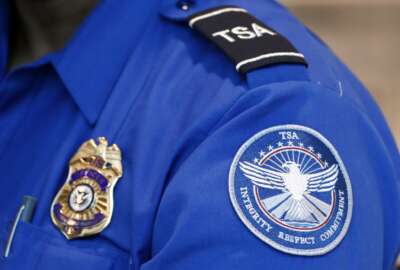Mr. President, America is under attack
What does the future hold for the Office of Personnel Management? Federal Drive host Tom Temin offers new steps for the agency to take following Katherine Archu...
Office of Personnel Management Director Katherine Archuleta, as I predicted three weeks ago, has resigned. Problem solved, let’s move on.
Fat chance.

In reality, Archuleta’s departure solves nothing fundamental. But she had to go, as I’m sure she understood probably from the moment she peered over the edge and realized — long before most everyone else — the size of the abyss caused by The Data Breach. Talk about big data. As primarily a politician, Archuleta must have realized that she would eventually take the fall for the administration, which of course is ultimately responsible. That’s the way of Washington; always has been. Katherine Archuleta isn’t a horrible person, nor do we have any reason to think she didn’t have the best interests of federal employees at heart. But as President Obama’s campaign manager who secured a visible, plum job, she would get it: This goes with the territory.
And the more the White House spokesman, a sort of latter day Ron Ziegler, pushed culpability away from the administration in the aftermath of Thursday afternoon’s revelation, the more it’s clear the White House itself knows it is somehow responsible for potentially messing up 22 million lives, compromising national security, and making the government look totally incompetent.
“There are significant challenges that are faced not just by the federal government, but by private-sector entities as well. This is a priority of the president,” the spokesman said. Yeah, well, the vulnerabilities of OPM’s systems and the Interior Department facility that houses them existed seven years ago and before that. The incoming just happened to land and explode now. Now we can presume they really, really are a priority.
So now what? It will fall to Beth Colbert, the deputy director for management at the White House, to salve the wounds.
And Obama himself ought to voice his personal concern over this. Some things that occur externally do get to presidents personally. Johnson and Nixon waded into crowds of Vietnam protesters. But more than that, some concrete things should happen:
- The White House should convene a meeting of the CIO Council to make it clear the 30-day cyber sprint ordered by Federal CIO Tony Scott is now a year-long effort.
- Pressure test every important system in the government. Hire the top corporate cybersecurity experts — a group populated in part by some famous formerly malevolent hackers — and have them bang away until they find all the weaknesses. Then give agency heads one working week to prove their vulnerabilities are plugged. Two-factor authentication, encryption of data at rest — for heaven’s sake do it already.
- Hire a tiger team to install Einstein 3A in every agency by July 31st, never mind December 31st. Require the internet service providers to do whatever it takes to make their inbound traffic compatible with this system. If Einstein 3A is so good, how come it’s taken so long?
I know what you’re saying. Yes, it does sound naive. I wasn’t born last night either. This is one of those times, though, that requires an all-out effort. For years we’ve heard warnings of a cyber 9/11. Well, we just had one.
This data loss was no third-rate burglary. Mr. President, America is under attack.
Tom Temin is host of The Federal Drive, which airs 6-9 a.m., on Federal News Radio (1500AM). This post was originally written for his personal blog, Temin on Tech.
Copyright © 2024 Federal News Network. All rights reserved. This website is not intended for users located within the European Economic Area.
Tom Temin is host of the Federal Drive and has been providing insight on federal technology and management issues for more than 30 years.
Follow @tteminWFED







